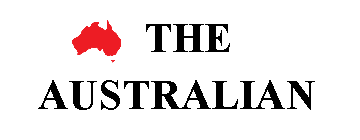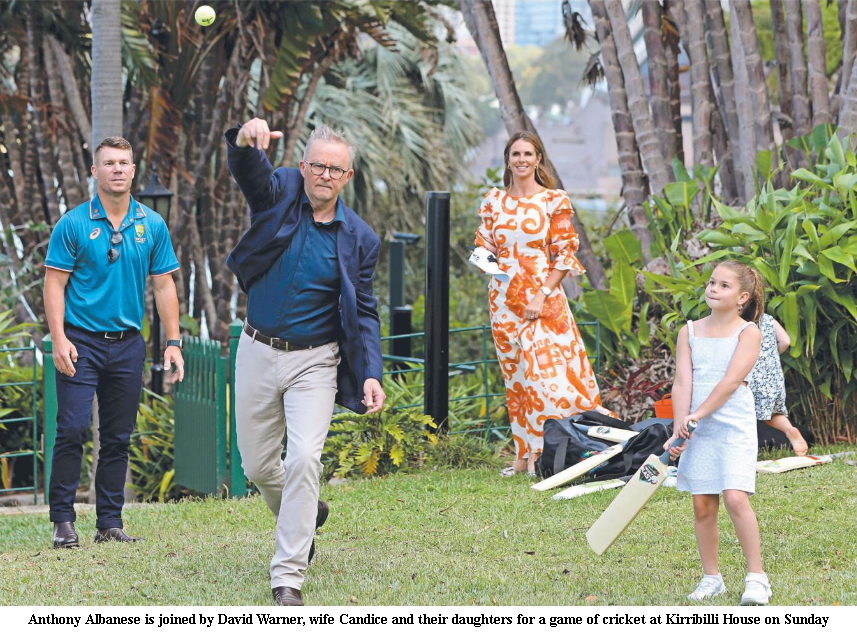



'Voice will succeed but risks leaving the nation divided'
An article by Joe Kelly and Greg Brown published in the Australian on Monday 2nd January 2022. link


An Indigenous Voice to parliament will lack legitimacy and fail to effectively represent the diverse views of Aboriginal Australians or improve conditions in remote communities, the architect of the Northern Territory intervention has warned.
Mal Brough, the Indigenous affairs minister who oversaw the 2007 intervention aimed at countering widespread child abuse in Aboriginal communities during the final year of the Howard government, said he believed the referendum would succeed but that it would divide the country.
He told the Australian the Voice was based on the "delusion" that a small group of Indigenous representatives could provide policy advice on behalf of Aboriginal Australians from communities as different as "any two nations as far flung on the Earth as you can get, from Africa to India and China to England".
Mr Brough also said the Voice would fail to address the daily traumas facing Indigenous people in communities across the country including "violence, abuse, neglect, poor health and education", arguing that the fundamental realities of Aboriginal life were being ignored.
He argued that a failure by the government to outline further detail on the model for the Voice would be like asking Australians to "sign a blank cheque".
But another former Liberal Indigenous Australians minister, Ken Wyatt, labelled Mr Brough's arguments as "garbage" and argued that the NT intervention had "destroyed local decision making." He said there was no need for the government to outline a model of the Voice ahead of the referendum.
"With all referenda, the question that has been put to the Australian people and the (preceding) legislation that was enacted, each time the government has remained fairly faithful to the intent of the question put to Australians," he said.
Mr Wyatt, appointed to the role after the 2019 election, said the Voice would be designed to improve the practical live of Indigenous Australians rather than serve a symbolic purpose.
"Nothing has changed at the community level, in 17 significant indicators of impact on the lives of Indigenous Australians," he said. "That's why we have the incredible levels of desparity, and they continue to prevail. Even with all the goodwill of governments, their commitment to certain policies, they are doing 'to' Aboriginal people and not doing it 'with' them. Until we do it with them nothing will change.
The debate came after Indigenous Australians Minister Linda Burney flagged a referendum date as soon as August, with the government aiming to introduce enabling legislation in the march sittings of parliament.
In response to the referendum timeline, the Coalition ramped up its campaign for the government to prvide more details on the Voice ahead of any vote, noting that only eight out of 44 referenda had succeeded.
Opposition Indigenous Australians spokesman Julian Leeser said Australians were expecting more detail to be provided and were naturally cautious about changes to the Constitution. "We are still to see any serious detail on the coive," his spokesman said. "the opposition has asked for that detail repetedly — including in the leader of the Opposition's Closing the Gap speech which detailed over 20 questions."
Warren Mundine, one of the leaders of the campaign against the Voice, said the new timeline underscored the "urgency of the government thinking they can ram it through without any detail." The messaging so far has been around September or October for the referendum and probably June, July, August for the enabling legislation," he said. "People are still confused (about the Voice)."
Mr Brough said he supported constitutional recognition for Indigenous Australians but opposed a Voice, arguing that Aboriginal views would be best reflected through the election of First Nations people to the federal parliament.
"How do we think we are going to achieve better advice that is going to be of benefit, more than people who have already put their hand up and won the support of the political party of their choice and gone on to be duly elected?" he asked.
"Today, we have representation in the parliament of people of Aboriginal heritage representing a greater percentage than that of the general populace. That is a good thing. I don't see that changing. I only see that growing."
"There is a misconception by many, perhaps even most well meaning and caring Australains, and that is that, if we have a group of — as the PM has said of 20 or 24 people — from across the nation we will have a view that can be expressed to assist government develop and implement policy from an aboriginal perspective.
"What this fails to acknowledge, as Noel Pearson will say eloquently, he has no authority to speak on anyone's behalf other than the communities from which he is from.
"Elders know and understand their people, their community — they are as distant and unique and as separated as any two nations as far flung on Earth as you can get, from Africa to India and China to England.
"Yet we are under the delusion that a group can come together and provide advice which is against their culture, where their authority starts and ends to speak on behalf of their own individual and more often than not small community groups."
Indigenous academic Tom Calma — who presented a report of the recommended design of the Voice to the Morrison government — said Mr Brough was not across the issue. "What's very clear is that he hasn't read our report ... the details of how the representative structure will work is clearly outlined in there," Professor Calma said.
"This is potentially going to be a game saver for Indigenous affairs if it is implemented properly and has a wide range of political and industry support."
* * * * * * *